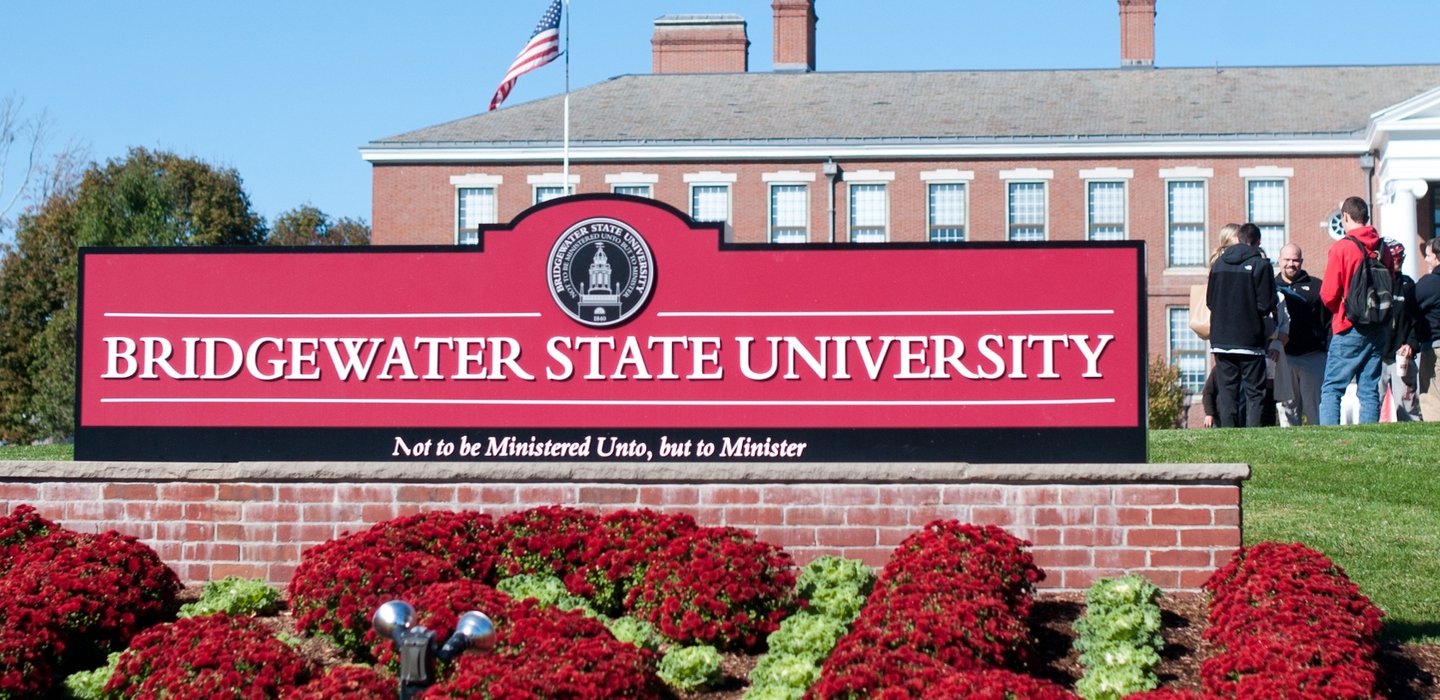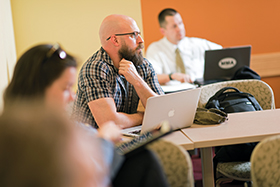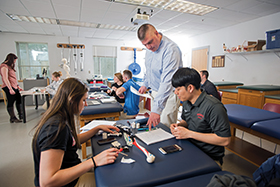Admissions Requirements:
- Possession of a Massachusetts Department of Elementary and Secondary Education active teacher license (Initial or Professional)
- Two appropriate letters of recommendation.
- Resume
- A qualifying score on the Communications and Literacy Skills portion of the Massachusetts Test for Educator Licensure® (MTEL)
- Official transcripts of undergraduate and graduate course work
Please note that admission decisions to the postbaccalaureate programs are made on a rolling basis when applications are submitted within a reasonable time frame prior to the start of the academic semester.
Courses and Descriptions:
INST 509: Foundations of Instruction Technology
The history, current practices, and future directions of the instructional technology field provide a framework for student-creation of teaching and learning tools. Evaluation, collaboration and digital tools become vehicles for learning as participants probe the role of educational technology within the PreK-12 teaching and learning environment or professional setting for adult learners.
INST 522: Instructional Design
Using a systematic approach, students will design, develop, evaluate, and revise instruction to meet defined course outcomes. Contemporary theories and evidence-based best practices for learning become the framework and catalyst for the design process. Participants will develop proficiencies of both Ed Tech Tools and equitable learning settings.
INST 523: Online Teaching and Learning Environments
This course provides continued development of online teaching and learning environments. Practice using Learning Management Systems (LMS), online interactive environments and applications related to teaching and learning online using Universal Design principles in support of learning for all will be the focus of this course. Ethical and legal issues related to responsible use of social media, emerging technology, and a wide variety of curriculum connections will be explored and applied as well.
INST 524: Leading as an Instructional Technology Specialist
Procedures for the establishment or continued development of an instructional technology program for the PreK-12 environment and the professional setting for adult learners is the focus of this course. Candidates will explore the roles and responsibilities of the technology specialist leadership role. The history, current practices and future directions of the instructional technology field provide a framework for student-creation of teaching and learning digital tools. Collaboration becomes the vehicle for learning as students probe the role of technology within the PreK-12 environment and the professional setting for adult learners.
INST 525: Emerging Technologies and Learning Environments
Students will explore new and emerging technologies and construct a philosophical framework for how these technologies could enhance teaching and learning within the PreK-12 environment and the professional setting for adult learners. Planning, diffusion of innovation and the educational change process will be discussed. Technologies to be studied will include those related to virtual reality (VR), augmented reality (AR) mixed reality (MR) robotics, artificial intelligence (AI) and newly identified emerging tech devices, tools, software, apps, etc.
INST 529: Assistive Technology
This course is designed to help students understand the principles of universal design for learning (UDL) and the skills needed to assist teachers, administrators, and parents in the selection, evaluation, and use of adaptive/assistive technologies (AT). Assistive technology, accessibility features, and UDL tools support all learners to achieve educational goals. Students will learn about the continuum of AT devices from low-tech to high-tech, universal design for learning, curriculum adaptation, integration strategies, assessment, and evaluation protocols
INST 530: Coding and Robotics Across the Curriculum
This course will provide an introduction to coding as it relates to programming, robotics, and STEAM learning environments. Through exploration and practice with code/programming languages, participants will develop lessons that support the learning of K-12 core content while improving computational thinking skills for everyone. We’ll evaluate block based coding, and simple bots before moving on to build makerspace learning environments and connections to their place within the curriculum. Prepare to create animations, stories, and have fun as you collaborate with colleagues designing and solving open-ended tasks together.
INST 596: The Instructional Technology Specialist Practicum Experience
During the practicum experience, the student takes on the role of an Instructional Technology Specialist in a PreK-12 school setting with appropriate school and college supervision. The clinical experience is a full semester consisting of at least 150 clock hours (3 credits) for those who hold an Initial or Professional License with at least a year of teaching experience.




